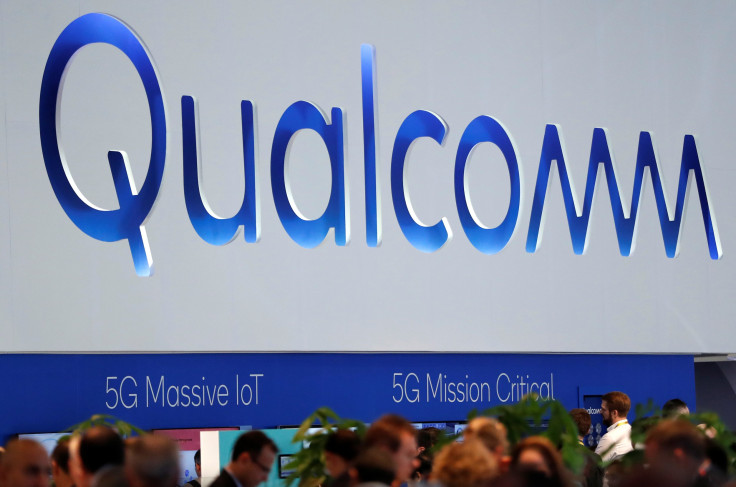Qualcomm Just Made Another Huge 5G Chip Announcement

Wireless technology giant Qualcomm (NASDAQ:QCOM) announced its second-generation 5G cellular modem, known as the Snapdragon X55, earlier this month. The modem is a significant advancement from the company's first-generation 5G modem, known as the Snapdragon X50.
Although there is a market for stand-alone cellular modems, the vast majority of smartphones use applications processors that also have the main cellular baseband processors integrated inside. That integration is popular because it allows smartphone makers to build smaller logic boards as well as potentially improve power efficiency.
On Feb. 25, Qualcomm announced a new, unnamed mobile applications processor that will have the Snapdragon X55 modem built inside. Here's why this is a big deal.
5G device proliferation
Put simply, Qualcomm integrating a 5G modem into its next premium mobile applications processor should lead to a dramatic increase in the number of 5G-enabled smartphones out there in the wild.
For example, if we look at Samsung's recently announced Galaxy S10-series of smartphones, the three main models in the lineup -- Galaxy S10e, Galaxy S10, and Galaxy S10+ -- don't have 5G capability at all. Instead, 5G is limited to an ultra-premium model, known as the Galaxy S10 5G, which pairs Qualcomm's Snapdragon 855 mobile applications processor with a stand-alone Qualcomm X50 5G modem.
Once this new 5G mobile platform is out -- Qualcomm says it's sampling to customers now and will find its way into devices in the first half of 2020 -- every smartphone that uses that platform should come with 5G capability. So, I'd expect that all of the successors to the Galaxy S10-series smartphones will be 5G-enabled.
Why this matters
If you're a Qualcomm investor, then this should matter to you for a couple of reasons. First, it looks like Qualcomm isn't letting its foot off the proverbial gas in terms of mobile processor technology -- this upcoming mobile platform with an integrated 5G modem should offer clear leadership in terms of modem technology, fortifying the company's position as the leading merchant vendor of premium mobile processors.
Beyond that, though, the proliferation of 5G benefits Qualcomm in another important way -- dollar content growth in smartphones. I don't have insight into how Qualcomm plans to price this upcoming mobile platform, but I wouldn't be surprised if the company were able to enjoy some lift in selling price compared to the company's current Snapdragon 855 flagship processor.
On top of that, Qualcomm has invested heavily in building out its efforts in RF front-end chips. In many flagship phones during the 4G era, these chips have been provided by third parties. However, in the age of 5G, Qualcomm seems to be gaining a lot of traction with such chips.
According to Qualcomm CEO Steve Mollenkopf on the most recent earnings call, "nearly all of the devices related to these 5G design wins use our RF front-end solutions and we expect these design wins to have a meaningful positive impact to our RF front-end product line." (In this case, Mollenkopf is talking about the design wins for its initial Snapdragon X50 5G modem.)
The idea here is simple: As Qualcomm's 5G-enabled applications processors become more prevalent, the company's 5G RF front-end solution sales should enjoy significant growth. This content growth is especially important for Qualcomm as industrywide smartphone unit sales have continued to fall.
Investor takeaway
Qualcomm's technology execution around 5G looks extremely strong. The company's core modem technology looks best-in-class, and the company isn't wasting time in integrating that differentiated 5G modem technology into applications processors that should enjoy broad adoption.
Only time will tell if Qualcomm will be able to maintain the lead in 5G that it seems to be opening up, but it does appear that the early innings of the 5G transition should be very kind to the wireless technology giant.
This article originally appeared in the Motley Fool.
Ashraf Eassa owns shares of Qualcomm. The Motley Fool owns shares of Qualcomm. The Motley Fool has a disclosure policy.





















